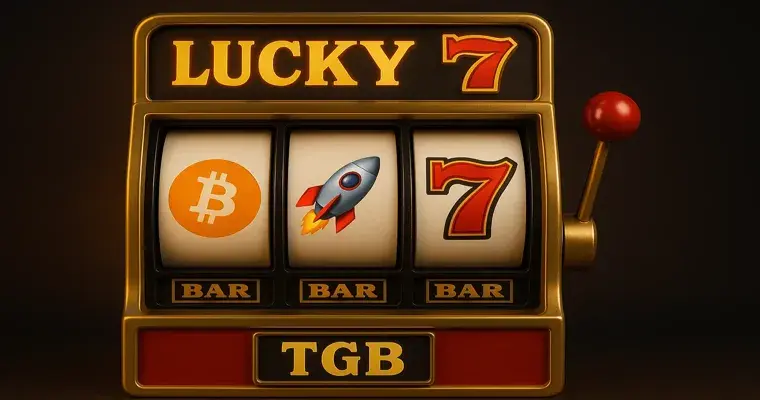Recently, it feels like all anyone is talking about are non-fungible tokens (NFTs). Part of this phenomenon is due to the news coverage of people who became overnight millionaires by purchasing NFTs, holding them, and then reselling for massive gains.
But there’s also a level of excitement around NFTs because they’re ushering in an unprecedented new world of ownership of digital assets that has never existed before. However, across the board, there’s one element about NFTs that tends to get swept under the rug—among all the success stories, not many people talk about NFT taxes.
If you ignore NFT taxes, you could find yourself in hot water come tax day. You might be underpaying, you could incur cash penalties for not paying NFT taxes on time, or you may be subject to higher tax rates than anticipated.
We don’t want that to happen to you. So, we put together this post to help you understand and navigate the world of NFT taxes. Keep these points top-of-mind while you revel in the hype, whether you’re an artist creating NFTs or an investor looking to pile on the profits. Let’s dive in.
Super Quick Recap: Non-Fungible Tokens
NFTs are unique digital items that exist on blockchains like Ethereum or Solana. They could be pieces of artwork, domain names, music, or special video game add-ons—technically, the possibilities are endless.
Typically, NFTs are minted (created) in limited quantities in order to maintain scarcity and exclusivity. And they sometimes come with special privileges for holders.
When they’re minted, every NFT receives an ID and metadata that brands it as uniquely different from all other NFTs. Even if you have an NFT that’s visually similar to another NFT, the two will be demonstrably different because of their respective IDs and metadata.
And, since they’re minted on a blockchain, there’s a verifiable transaction history associated with every NFT that shows who minted it, who previously owned it, and how much crypto it’s been traded for. Most importantly, almost all NFTs are taxable.
How are NFTs Taxed?
The IRS hasn’t taken a formal stance on the tax treatment of NFTs yet. This makes calculating NFT taxes a bit tricky, but it also underscores the importance of staying on top of your NFT taxes. It’s better to be overprepared than underprepared when dealing with the IRS.
On one hand, it’s possible that NFTs could receive the same treatment as crypto, in which case NFTs would be considered property. That means they would have long-term capital gains tax rates based on your personal income, around 0% to 20%.
On the other hand, NFTs may receive similar treatment to stamps, antiques, or trading cards. This would give them the collectibles tax rate, which is significantly higher, around 28%.
These are just the rates for NFTs held longer than one year though. If you buy and sell an NFT in less than a year, you’re subject to short-term capital gains tax based on your personal income. Some estimate this range could be between 37% and 50% of your earnings.
Now, remember that a lot of these numbers are currently just industry speculation. But you have to be aware of the conversation happening around NFT taxes.
The best thing you can do is get in touch with a tax professional to discuss what your personal situation will look like. And that situation will look different depending on whether you’re an NFT artist or an NFT investor.
NFT Taxes for Artists
The tax situation for professional NFT artists and creators is relatively straightforward. When you sell an NFT, you’re subject to tax on the revenue from the sale.
These profits are considered income and will be taxed at your ordinary income tax rate like a paycheck is. It’s not subject to capital gains tax.
However, any gas fees paid for minting an NFT are taxable. For example, let’s say you want to mint an NFT, and the fee is 0.1 ETH, which you initially purchased one month ago for $100.
At the time of mint, the value of 0.1 ETH has increased to $200. Since you have to dispose of your crypto to pay the gas, you’ll incur a $100 capital gain on the appreciated ETH. However, since you’re classified as a professional creator, this is treated as income and taxed as such.
This same logic applies to short and long-term gains on the sale of NFTs as well as any royalties you may gain from resale of your creations. What’s more, professional NFT creators can offset their taxes by filing the Schedule C form and deduct internet, utilities, and other business expenses.
However, the crucially important word in all of this is “professional”—that’s a legitimate classification. If you don’t mint or create NFTs as your real-world job, you’re what’s known as a hobbyist.
And hobbyist NFT creators don’t get to treat these gains as ordinary income. All of your gains are subject to capital gains tax.
NFT Taxes for Investors
Many NFT investors, especially first-timers, get excited about massive potential profits from buying and selling NFTs on the open market. If you fall into this group, you’ll have to pay capital gains tax on any of your gains when you:
- Acquire an NFT using cryptocurrency
- Sell off an NFT for cryptocurrency
- Trade an NFT for another NFT
Purchasing an NFT with crypto, like ETH, is considered a disposal event. You’ll incur a capital gain or loss on that disposal depending on the valuation of your coins since your original point of purchase.
For example, let’s say you bought 1 ETH last year for $100. Today, you want to use it to purchase an NFT for 1 ETH, but the overall value of ETH has appreciated to $1,000.
When you dispose of your ETH to complete the purchase of this NFT, you’re realizing a $900 gain in the value of your cryptocurrency asset. That $900 is subject to capital gains tax.
Now, after you purchase this asset valued at 1 ETH, let’s say that you hold it for a few months. Then, you decide to trade it for another NFT worth 1 ETH, but the value of 1 ETH has appreciated to $2,000. Upon completion of the trade, you incur a taxable capital gain on the $1,000 in appreciated ETH value.
After another few months of holding your NFT that’s worth 1 ETH, you make the decision to sell it. However, the value of 1 ETH has increased from $2,000 to $5,000, and upon the sale of your NFT you’ll incur yet another taxable capital gain of $3,000. (Are you starting to notice a pattern yet?)
On the flip side, if the value of ETH drops between points of purchase, trade, or sale, you actually incur a capital loss and can offset your overall taxes with the loss. Also, remember that the length for which you hold your NFT impacts the tax rate you’ll have to pay: short-term capital gains tax if you hold for less than a year, and long-term capital gains tax if you hold for more than one year.
Last, the one area for NFT investors that isn’t subject to capital gains tax is NFT airdrops. Airdrops are events where NFT holders are given free coins or other NFTs that hold monetary value. The amount of income here is taxed as ordinary income.
Reduce Your NFT Taxes
When it comes to reducing your NFT taxes, there are a few things you can try to help balance your bottom line.
1. Build a Long-Term Strategy
What’s your endgame with cryptocurrency and NFTs? Are you a HODLer, or are you trying to make some massive short-term gains? Working with a financial planner can help set a roadmap that ensures you avoid NFT tax pitfalls.
For example, it may not be prudent to liquidate all of your crypto at once in order to cash out for some major gains on appreciated assets. From a tax standpoint, that could actually hurt you more than it helps.
With a financial advisor’s oversight, you can implement a strategic approach like dollar-cost averaging (DCA) as you exit your positions. Techniques like this can spread out your capital gains over multiple years, or even allow you to stretch out a portion of those short-term gains into long-term gains that are more favorable for your taxes.
2. Put Your Crypto in an IRA
No matter what the media says, crypto is an asset with real-world value. As such, you can keep it stashed in an IRA account, where you may not have to pay any taxes on it at all until you’re eligible to withdraw funds.
Typically, most people choose to withdraw funds from their IRA when they retire, so this is the epitome of a long-term investment strategy. However, it’s important to remember that you’re permitted to trade assets in an IRA without being subject to capital gains tax for every transaction.
3. Donate Crypto to Nonprofits
When you make a crypto donation, it’s not subject to capital gains tax. The biggest thing to pay attention to is how long you’ve held your crypto assets before choosing to donate.
If you’ve held your crypto for one year or less, you can deduct the lesser of your basis in your crypto or its fair market value up to 50% of your annual gross income. If you have held your cryptocurrency for over a year you can deduct its fair market value up to 50% of your annual gross income.
You also have two crypto donation scenarios you can play with here. First, let’s say you bought $1,000 worth of ETH, which appreciates in value to $10,000.
One option could be to liquidate the ETH and make the cash contribution to the nonprofit. However, if you do this, you’ll be liable for a capital gain of $9,000 on the disposal of the ETH.
The other, better option is to donate the full value of the ETH directly to the nonprofit. In that case, you get to write off the fair market value on your taxes, which would be the full $10,000.
Similarly, you might consider donating your crypto to a Donor-Advised Fund (DAF), which nets you an immediate tax benefit as well. In any case, it’s crucial that you obtain a donation receipt from the nonprofit in order to claim the tax benefits.
Nonprofits who use The Giving Block can easily and automatically issue tax-compliant receipts so that you can get your tax benefits. Be sure to check out our full list of partners and consider making your first crypto donation today.
Master Your NFT Taxes
Don’t let NFT taxes discourage you from exploring the world of NFTs. This is an exciting time to get involved with a new wave of digital art and collectibles that’s revolutionizing how art can be presented, collected, monetized, and created. Just look at how NFTs have benefitted nonprofits like Orangutan Outreach and Trees for the Future.
Above all, the key thing is to be aware of your transactions. Because, at the end of the day, your financial success is going to come down to your diligent record keeping and transparency with the IRS.
For anyone who wants to start out with NFTs, or deepen their experiences, the best thing you can do is find a highly qualified tax professional. They’ll be able to help you navigate the somewhat uncharted territory of NFT taxes, and then some.
Disclaimer: The Giving Block team is not made up of financial advisors, tax accountants or attorneys. We just love helping nonprofits accept cryptocurrency donations. This article should not be considered financial or legal advice. Every person’s situation is different, and we strongly recommend that you talk to your accountant, attorney or financial advisor before making any major financial decisions.
Tax Advice & Software
Additional Resources

How Churches Are Modernizing Giving with One Seamless Online Platform

Countdown to December 31st: High Impact Year-End Fundraising Strategies for Nonprofits

Crypto Giving Tuesday 2025: The Global Movement of Giving Is Back




























